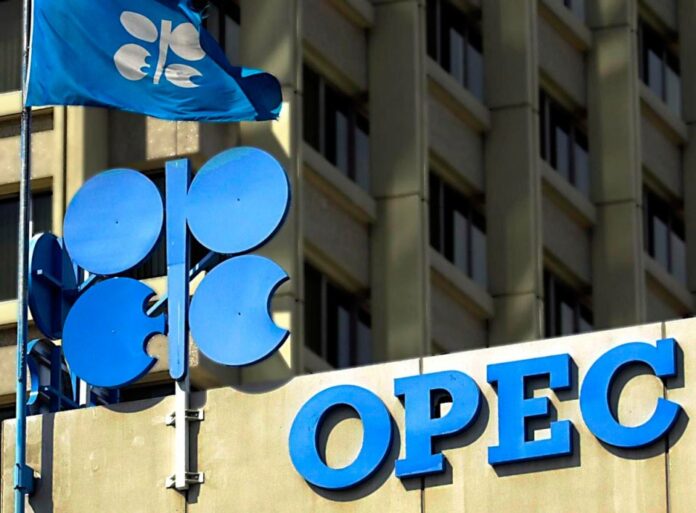•Oil price slumps, nears four-month low
Oil output by the Organisation of Petroleum Exporting Countries (OPEC) rose in May, as higher exports from Nigeria and Iraq offset the impact of ongoing voluntary supply cuts by some members agreed with the wider OPEC+ alliance.
OPEC pumped 26.63 million barrels per day last month, up 145,000 bpd from April, a Reuters survey found, based on shipping data and information from industry sources.
Several members of OPEC+, which include OPEC, Russia and other allies, made new cuts in January to counter economic weakness and increased supply outside the group. Producers decided last Sunday to keep them in place for the third quarter, having earlier extended them until June.
Iraq and Nigeria each raised output by 50,000 bpd and there were smaller hikes in Saudi Arabia and the United Arab Emirates while only Algeria cut output, as a result of oilfield maintenance.
Nigeria has long been unable to meet its OPEC quota, which was in 2023 slashed from 1.7 million bpd to 1.5 million bpd. The country blames massive oil theft, waning investment as well as outright sabotage for the prolonged challenge.
Many oil wells continue to be shut in as producers find it difficult to take them to the terminals, with either old or vandalised pipelines.
The country had recently resorted to the use of barges in a desperate effort to raise production in the country which still gets up to 85 per cent of all foreign exchange earnings from the commodity.
But the report said that OPEC pumped about 250,000 bpd more than the implied target for the nine members covered by supply cut agreements, with Iraq accounting for the bulk of the excess.
Among those not required to cut output, Iran and Venezuela boosted output slightly. Iran is pumping near a five-year high reached in November after posting one of OPEC’s biggest output increases in 2023 despite U.S. sanctions still being in place.
The survey tracks supply to the market and is based on shipping data provided by external sources, LSEG flows data, information from companies that track flows – such as Petro-Logistics and Kpler – and information provided by sources at oil companies, OPEC and consultants.
Meanwhile, oil prices hovered near four-month lows yesterday as markets digested an OPEC+ decision to boost supply later this year and following an increase in US crude and fuel stocks.
Brent crude futures were up 4 cents at $77.56 a barrel by 0307 GMT, while US West Texas Intermediate crude futures were flat at $73.25 a barrel.
Both contracts fell nearly a dollar on Tuesday to their lowest settlement levels since early February, and had declined around $3 a barrel on Monday.
The slide followed news from OPEC and its allies of plans to increase supply from October despite recent signs of weakening demand growth.
However, Saudi Arabia’s energy minister, Prince Abdulaziz bin Salman, has said OPEC+ would pause the unwinding of the cuts or reverse them if demand wasn’t strong enough to absorb the barrels.
After last Sunday’s OPEC meeting attended by Nigeria, the Minister of State Petroleum Resources (Oil), Senator Heineken Lokpobiri, who attended the 37th edition of the meeting on behalf of Nigeria, reiterated Nigeria’s dedication to the supply cuts.
A statement by his spokesperson, Nneamaka Okafor, quoted the minister as emphasising the country’s continued compliance with production adjustments designed to stabilise the global oil market.
In his address, the minister stated that Nigeria remains unwavering in its commitment to the agreements, saying it was crucial for maintaining market balance and supporting global efforts toward sustainable oil market stability.

























